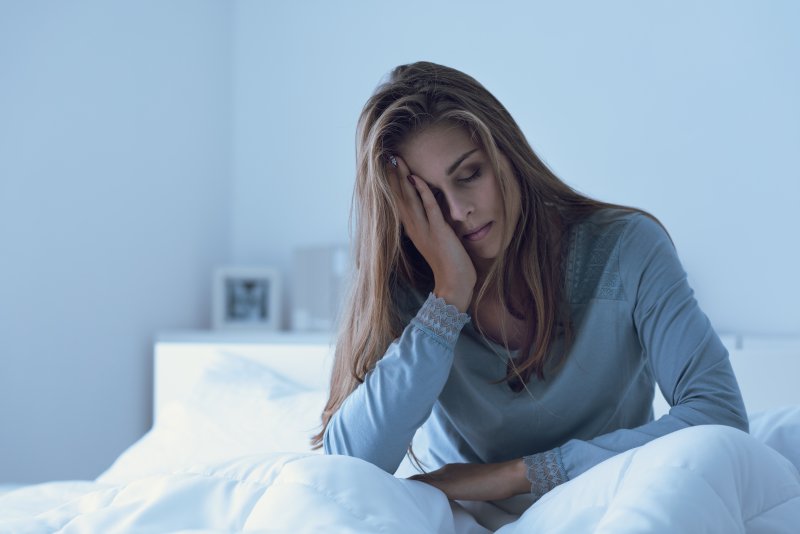
Sleep apnea can be a difficult thing to deal with. This sleep disorder causes the sufferer to stop breathing repetitively throughout the night. It can result in insomnia, fatigue, and headaches. This can affect day-to-day life and has been associated with depression. Continue reading to learn more about the links between sleep apnea and depression as well as some of the symptoms you should be on the lookout for.
What’s the Link between Sleep Apnea & Depression?
There seems to be a correlation between sleep and mood, as well as lack of sleep and depression. Some people experience an onset of symptoms from both conditions at similar times, while others experience the symptoms of sleep deprivation before depression. Both conditions can increase the likelihood of developing the other. Research shows that insomnia is tied to depression, but insomnia related to sleep maintenance has a larger correlation to depression and anxiety. Another study showed that about 46% of people with obstructive sleep apnea (OSA) had depressive symptoms.
How Do the Symptoms Compare?
Sometimes, symptoms of depression and sleep apnea can overlap, so it is understandably difficult for people to figure out exactly what’s happening with their body. This is especially the case because depression can be a symptom of sleep apnea. Here are some of the common symptoms of OSA:
- Loud snoring
- Waking up abruptly with shortness of breath
- Difficulty paying attention
- Excessive tiredness
- Sore throat
- Dry mouth
- Irritability
These are some of the symptoms commonly linked with depression:
- Irritability & frustration
- Feelings of sadness, emptiness, or hopelessness
- Changes in appetite
- Sleep disturbances
- Insomnia
- Difficulty thinking and concentrating
- Headaches
- Fatigue
How Can You Improve Sleep Apnea at Home?
Here are some methods that many patients find effective in addressing their sleep apnea symptoms:
- Exercise Regularly: This can help you to drop any excess weight, easing sleep apnea symptoms.
- Avoid Back Sleeping: Sleeping on your back can result in your tongue blocking your airway. Try sleeping on your side or stomach instead.
- Limit Alcohol: Drinking alcohol can worsen depression and sleep apnea.
- No Sleeping Pills: Sleeping pills don’t help with sleep apnea, and they can worsen depression symptoms.
To find out if you have sleep apnea, talk to your dentist or primary care physician. This way, it can be determined whether or not this sleep disorder could be contributing to your depression or vice versa. By seeking treatment, you can work towards a good night of sleep and may even reduce your depression symptoms.
About the Author
Dr. Keane Fedosky is a sleep dentist with over 20 years of experience in customized oral appliances. He graduated from Baylor College of Dentistry in 1991 and is a diplomate of the American Board of Dental Sleep Medicine. He is also a proud member of the American Academy of Dental Sleep Medicine and the American Academy of Craniofacial Pain. To learn more about sleep apnea or to schedule an appointment at his office in Plano, visit his website or call (972) 753-3737.
